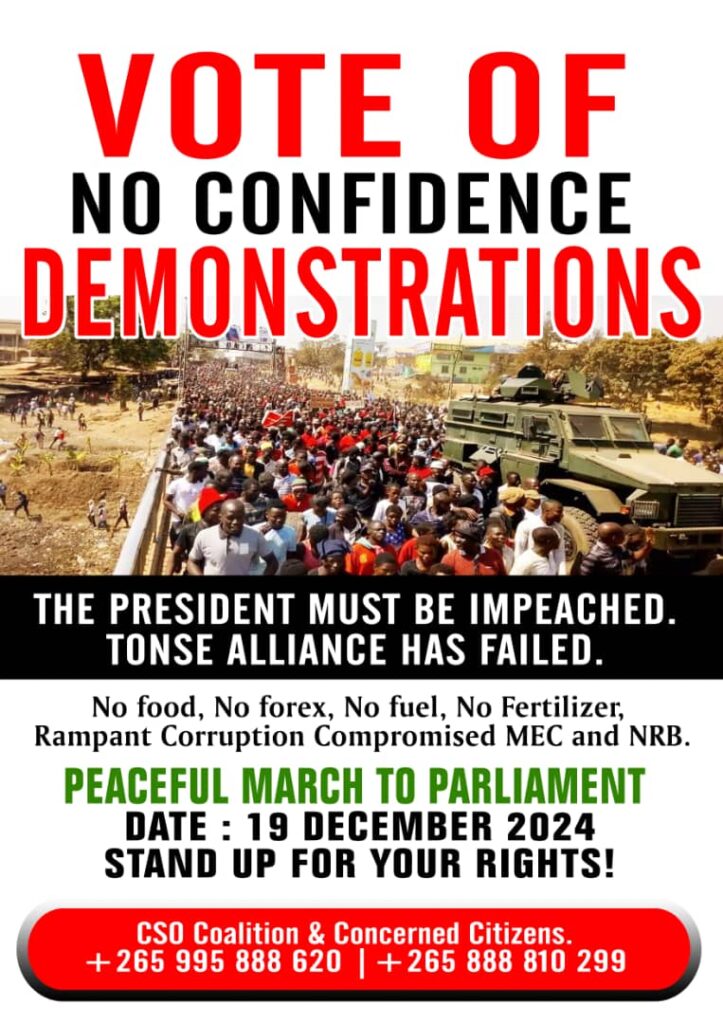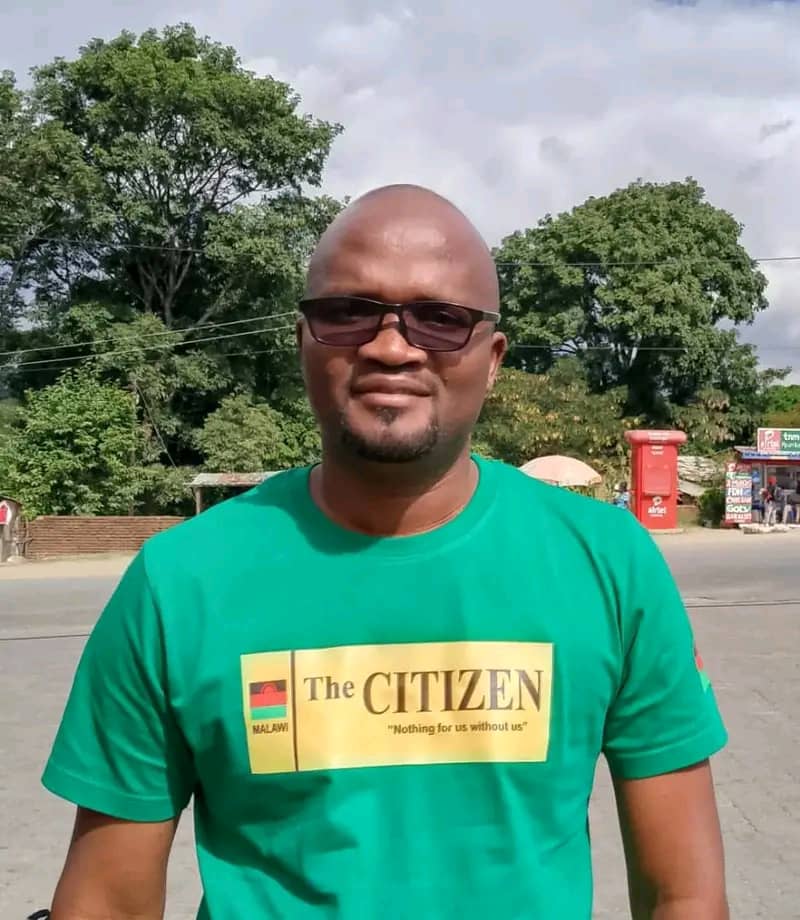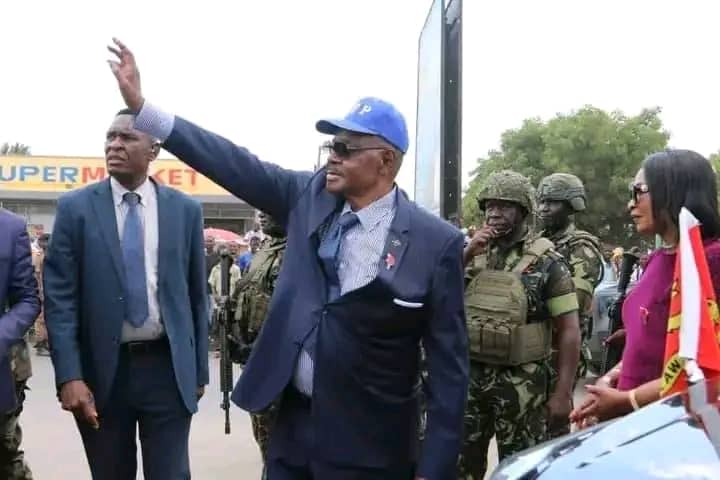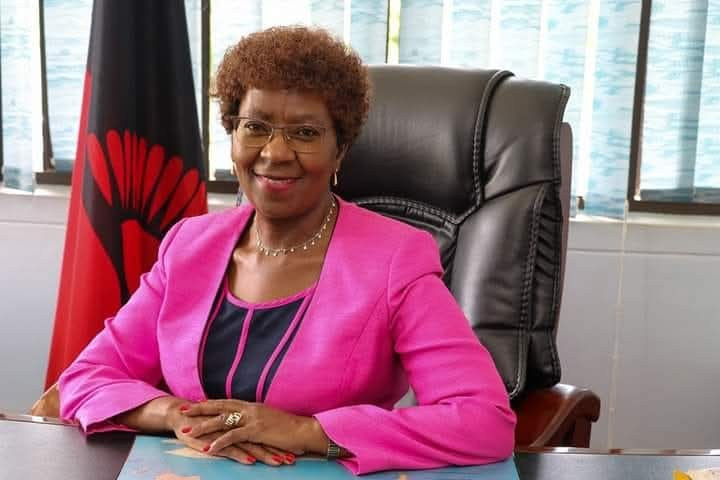By Burnett Munthali
Malawi is witnessing growing discontent among its citizens, with calls for a nationwide protest on December 19, 2024. Organized by a coalition of civil society organizations (CSOs) and concerned citizens, the demonstration aims to express no confidence in President Lazarus Chakwera and demand his impeachment.
The organizers cite several pressing issues that they believe signify the failure of the Tonse Alliance government. Among the main grievances are:
Firstly, citizens have decried the acute shortage of food in the country, exacerbated by poor agricultural policies and the unavailability of affordable fertilizer under the Affordable Inputs Program (AIP).
Secondly, the persistent lack of foreign currency has disrupted essential imports, including fuel, medical supplies, and basic commodities.
Thirdly, protesters accuse the government of failing to combat corruption, with allegations of mismanagement and misuse of public resources.

Fourthly, the Malawi Electoral Commission (MEC) and the National Registration Bureau (NRB) are under fire for alleged bias and inefficiency as the country gears up for the 2025 elections.
Fifthly, many Malawians feel that the Tonse Alliance, now commonly referred to as MCP government, after the alliance crumbled down, has failed to deliver on its campaign promises, with the cost of living skyrocketing and unemployment remaining high.
The protesters are calling for:
The impeachment of President Lazarus Chakwera: They argue that his leadership has failed to address the nation’s critical challenges.
Accountability from government institutions: Civil society leaders are demanding transparency and immediate reforms in MEC and NRB operations.
Concrete solutions to the food crisis: They want the government to prioritize food security and agricultural investments.
Economic stability: Organizers are pressing for measures to stabilize the economy, address forex shortages, and curb inflation.
The protest is scheduled for December 19, 2024, with demonstrators planning a peaceful march to Parliament. The organizers have urged all Malawians to join the demonstration, emphasizing the importance of standing up for their rights.
“Malawi is at a critical crossroads. We must hold our leaders accountable for their failures. This is not about political affiliations; it is about the future of our nation,” said a representative of the CSO coalition.
The government has yet to officially comment on the planned protests. However, political analysts predict that the Tonse Alliance may downplay the significance of the demonstrations. They also note that this growing discontent could signal a shift in the political landscape as the 2025 elections approach.
Malawians have expressed mixed reactions to the planned protests. Some citizens have lauded the initiative, arguing that it is long overdue and reflects the frustrations of ordinary Malawians. Others, however, have raised concerns about potential disruptions to businesses and public services.
One Lilongwe resident stated, “We have suffered enough. This is our chance to speak out and demand accountability from those in power.”
As the date of the protests draws closer, all eyes will be on the government’s response and the turnout of citizens. The demonstrations are expected to serve as a litmus test for the Chakwera administration’s ability to address public grievances and rebuild trust.
The planned no-confidence demonstrations highlight the growing frustration among Malawians over the Tonse Alliance government’s perceived failures. As citizens prepare to take to the streets, the demand for accountability and tangible solutions to Malawi’s pressing issues has never been louder.
About the Author
Burnett Munthali is a political analyst. He specializes in governance and public policy, offering critical insights into Malawi’s political and economic challenges.




